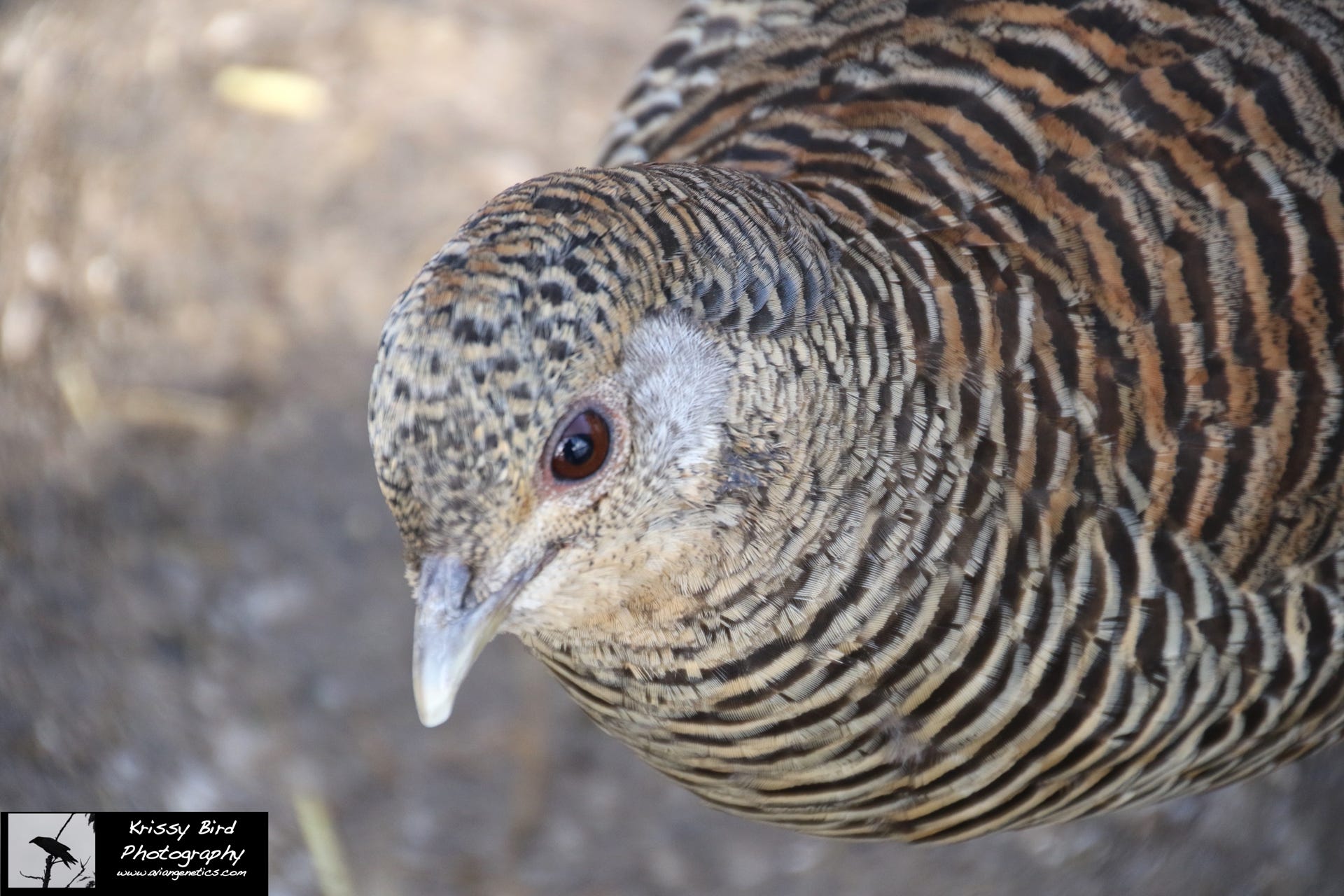Golden/Red Golden Pheasant


Red Golden Pheasant Information
Scientific Information
Class: Aves
Order: Galliformes
Family: Phasianidae
Subfamily: Phasianinae
Genus: Chrysolophus
Species: Chrysolophus pictus
Species English Name: Golden Pheasant, Red Golden Pheasant
Common Name: Red or Golden
CITES Status: Not Listed
IUCN Status: Least Concern
Distribution: Central China
References: William Beebe’s A Monograph of Pheasants Volumes I, II, III, & IV, CITES status search, & IUCN status search.
Mutation Description
• Male - Red body, bright yellow crest, yellowish-orange cape with black barring, blue wings, dark green metallic mantel, bright yellow rump, golden-brown tail with brownish-black speckling, pale yellow legs & beak, yellowish-green eyes
• Male colour fades quickly and substantially with sunlight exposure. Some lines are more tolerant to sun exposure and retain their bright yellow colour for most of the year.
• Female - Tannish-brown body with brown barring , brown cape with darker bars, barred tail, pale yellow legs & beak, brown eyes.
• Very hardy birds.
Diet
• We feed our breeders and young adults 17% poultry layer pellets, our tiny chicks 21% poultry starter crumble (fine crumble), and our growing chicks 16% grower crumble (coarser crumble).
• They get a handful of mixed grains every second day during winter. They also get fresh greens (lettuce, chickweed, dandelions, grass) and fruits & vegetables (tomato, grapes, berries, etc.) when available.
Breeding
• Done in pairs or trios.
• Goldens are first year birds meaning that the female will lay eggs the spring after she is hatched. The male is fertile the first year.
• They start laying eggs around mid April and will lay every day or every second day until they lay approximately 30+ eggs.
• They lay a small sized pale creamish egg.
Incubation
• Eggs are collected twice a day and marked with the date and breeding pen number and set daily.
• Eggs are set in an automatic turning Lyons Roll-X (RX2) with grid 109, a Brinsea Ovation 56 with the default egg carrier, or the Brinsea Ova-Easy 380 Advance Series II Cabinet Incubator.
• Temperature 99.8°F, humidity-wet bulb 84 with humidity adjusted periodically depending on development of the air space shown by candling
• On the final day of incubation, each egg is placed in its own oval wire mesh hatching basket (6" x 3" x 3") and set in a Roll-X incubator converter to a hatcher.
• Incubation for Goldens is 21 days.
• After the chick hatches, it stays in the hatcher for a minimum of 8 hours.
Chicks
• Chicks are reddish brown with a pale yellow face , throat, and stomach.
• They start out in our round 18" brooder pen with a mixed assortment of chicks. After a few days they are separated into a 2' x 4' baby pen for about a week. They are then transferred to a Golden-Amherst 2' x 6' pen for the next 7-9 weeks. They stay with this grouping until they go outside. All of these brooding pens have wire bottoms with a heat lamp at one end and feed & water at the other end. The heat lamp is attached to a dimmer switch so we can turn down the amount of heat as the chicks get older until it is turned off completely.
• After they are off of the heat for a few weeks, they are moved outside to the pheasant house (has outside grassy pens and a heated inside house part where they are blocked in for the night). After they are toughened up, they are moved to an outside chick pen. In the late summer/early fall they are separated into Golden and Amherst pens.
• Chicks are very easy to raise together with their own kind and other ruffed.
Pens
• 25' long x 10' wide x 6' high with a 4' x 4' x 4' house in the middle.
• Pens are covered with 2" diamond top-rite.
• Pens contain grass, which needs to be mowed occasionally because they aren't very big grass eaters.
Behavior
• Are calm and showy birds that are very easy to tame. The males love to display for any one that will watch them and look quite impressive when they flare their cape. They are easy to raise and are a very hardy bird.
Article By Krissy & Donna Bush Pheasant Ridge (updated by Krissy Bird - 2025)


Red Golden Pheasants
Red Golden Pheasants


Red Golden Pheasants
Red Golden Pheasants


Red Golden Pheasant Male
Red Golden Pheasant Male


Red Golden Pheasant Male
Red Golden Pheasant Male


Red Golden Pheasant Female
Red Golden Pheasant Female


Red Golden Pheasant Female
Red Golden Pheasant Female


Red Golden Pheasant Chick
Red Golden Pheasant Eggs


Red Golden Pheasant Chick
Red Golden Pheasant Chicks


Red Golden Pheasant Chicks
Young Red Golden Pheasant Male

